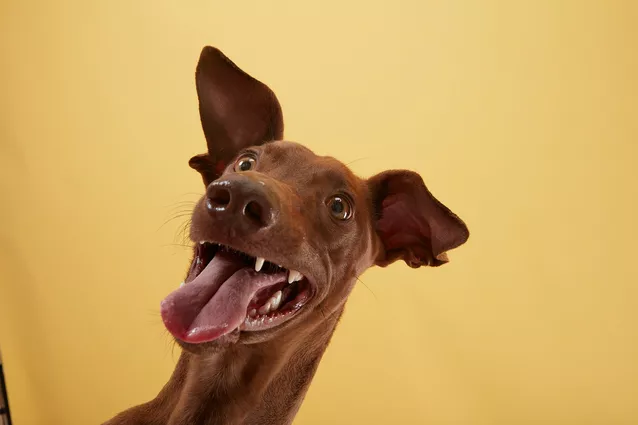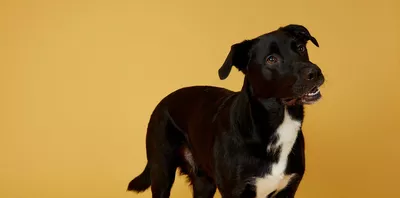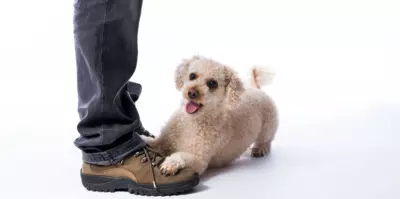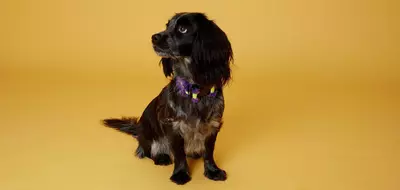Why Do Dogs Nibble On You?
- 20 Sep 2023
- 3m read

Ah, the delightful mystery of why our furry friends nibble on us. At Butternut Box, we believe that understanding our dog's behaviour is key to ensuring their well-being and happiness. So, let's decode this together.
What Does It Mean When a Dog Nibbles You?
When your dog starts to nibble on you, it can mean several things, and deciphering their message is all part of the fun of being a pet parent. Here are some common reasons behind this endearing yet slightly puzzling behaviour:
Exploration and playfulness
Dogs, much like human babies, explore the world through their mouths. Nibbling on you might be their way of playfully investigating their surroundings. It's their equivalent of touching, feeling, and tasting things.
Affection and bonding
Dogs are incredibly social creatures. Nibbling can be a sign of affection and an attempt to strengthen the bond between you and your furry friend. They might nibble you gently as a way of saying, "I love you."
Teething
Just like human babies, puppies go through a teething phase. During this time, they may nibble on various objects, including your fingers or hands, to relieve the discomfort of teething.
Communication
Dogs use body language to communicate, and nibbling can be a form of communication. If your dog gently nibbles you and then leads you somewhere, it could be their way of guiding you or asking for something.
Attention-seeking
If your dog nibbles on you when you're not paying attention to them, it might be their way of saying, "Hey, look at me! I want some love and attention."
Stress or anxiety
In some cases, nibbling can be a sign of stress or anxiety. If your dog nibbles excessively or aggressively, it's essential to consider their overall behaviour and consult with a vet or a professional dog trainer.
Is It Ok To Let Your Dog Nibble On You?
Now that we've uncovered some of the reasons behind your dog's nibbling tendencies, let's address the question of whether it's acceptable to let them indulge in this behaviour.
Setting boundaries
It's essential to establish clear boundaries with your dog. While gentle nibbling can be a sign of affection, it's crucial to teach them when and where it's appropriate. Encourage playtime and affection, but also teach them when it's time to stop.
Monitor the nibbling
Pay attention to the intensity of the nibbling. Gentle nibbling is usually harmless and can be a sweet form of communication. However, if your dog's nibbling becomes aggressive or excessive, it's time to intervene and address the underlying issue.
Teething puppies
If you have a teething puppy, it's perfectly normal for them to nibble on objects, including your hands. To alleviate this, provide them with appropriate teething toys and regularly check their dental health.
Avoid encouraging bad habits
While it's adorable when your dog nibbles affectionately, be cautious not to reinforce unwanted behaviours inadvertently. If your dog nibbles for attention, make sure to reward them for good behaviour without indulging the nibbling.
Consult a professional
If your dog's nibbling is causing concern or discomfort, consider seeking guidance from a professional dog trainer or behaviourist. They can provide valuable insights and techniques to address specific issues.
Health and dental checkups
Regular checkups with your vet are essential to ensure your dog's overall health, including their dental health. Dental problems can sometimes lead to excessive nibbling, so it's crucial to keep their oral hygiene in check.




.png)